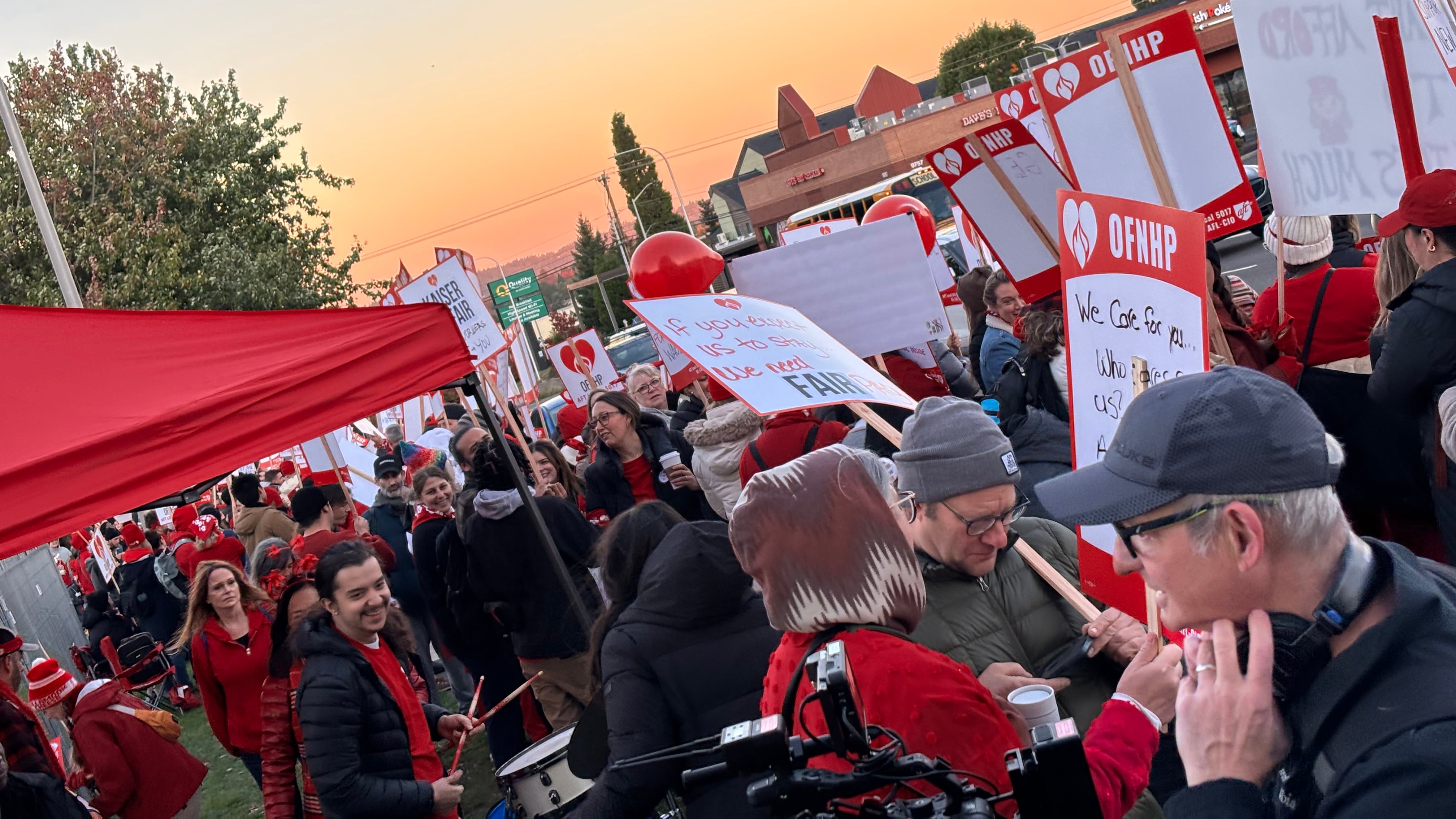They were converging, in the blue light of dawn Tuesday, on Kaiser Permanente’s Sunnyside Medical Center. They deposited their cars. They moved in packs along the sidewalk. Nearly all dressed in their union’s red, emitting frequent whoops of delight, they appeared as home-team sports fans, arriving at a stadium for the big game.
At 7 am, thousands of Portland-area Kaiser Permanente nurses, lab workers and other staff went on strike, joining a massive temporary work stoppage across multiple states designed to pressure the health care giant to give in to union demands as contract negotiations drag on.
As the strike began, union members who had arrived from elsewhere cheered on workers streaming out from the hospital entrance—one of several strike locations in the area. Together, they launched an initial picket along Sunnyside Road, a major Clackamas County thoroughfare.
Labor groups participating in the strike represent some 45,000 workers around the country. Kaiser, in negotiations with the Alliance of Health Care Unions, has offered to increase pay across the board by 21.5% over four years, short of the 25% the unions seek.
The labor groups say inadequate pay leads to turnover and recruitment challenges, which lead to unsafe staffing levels. “We have a duty to speak out,” said Oregon Federation of Nurses & Health Professionals president Sarina Roher, minutes after the picket began. “We are not walking out on our patients. We are simply standing up for them.”
Kaiser says it already offers competitive pay and benefits, and that it cannot meet worker demands—which are “out of step with today’s economic realities and rising health care costs”—without incurring a dramatic increase in payroll expenses, which would get passed on to patients.
Kaiser received formal notice of the coming strike about 10 days ago. It says its hospitals, medical and dental offices, and pharmacies—of which it has collectively dozens in the greater Portland area—will remain open for the duration.
Physicians, experienced managers, and trained staff will provide care, “with added licensed contract professionals as needed,” Kaiser says. Still, it adds that it is shifting some appointments to virtual care, and may need to reschedule certain appointments, elective surgeries, and procedures.
The strike is set to last at most through Sunday morning. Members of the Alliance of Health Care Unions debated durations ranging from three days to an open-ended stoppage, says Clarissa Charlier, an emergency room nurse and a strike leader.
“The beauty of a five-day strike is it’s a little less stressful to staff,” said Charlier, who will miss three shifts during the strike, in an interview. Plus, she added, studies show that in the health care context, defined-length strikes get results.
While they’re off the job, union members like Charlier have signed up to staff picket lines at Westside, Sunnyside and Interstate Medical Centers, among other locations in Southwest Washington and Salem.
Some patients may put off seeking care during the strike. It could affect Kaiser in other ways too. Temporary contract health workers, for example, tend to command far higher wages than regular staff. Zip Recruiter calculates that travel nurses on average earn about $16 an hour more than their in-house counterparts.
Kaiser gets its temporary workers through the staffing company AMN Healthcare. As her union set up for the strike Tuesday morning, Charlier says, she saw charter buses full of temporary replacements, pulling into the hospital.

